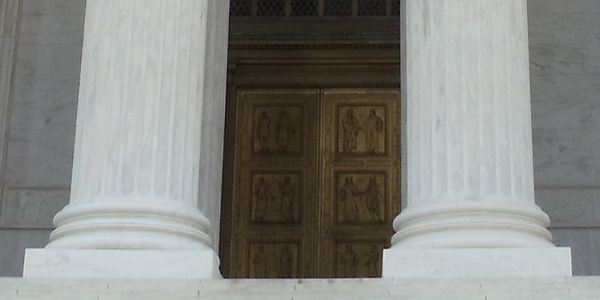
May 13, 2012, by Brigitte Nerlich
Science in Government
This is a GUEST BLOG by Dr Sujatha Raman, Deputy Director of the Leverhulme Programme: Making Science Public.
Why should we care about the role of science in government? A common answer is that policymakers need the best available information for coping with complex, collective problems through technology and/or rules and regulations. We want such things as clean energy, a cure for cancer or information on fetal pain responses in order to devise laws on abortion, suggests Adam Smith in a new blog series for the Guardian, and should therefore seek ways to make the relationship between scientists and politicians better for all concerned. In other words, science offers public goods which policymakers must make the best use of in the collective interest.
The idea of science as a public good is a powerful one. A lot of people would sign up to a scientific enterprise that promises cures for degradation of the environment or of the human body. But, what is the nature of the ‘public’ in this notion of scientific public goods?
I argue that the potential to deliver public goods is only the starting point for mapping the public nature of science, when it is often treated as the end. Promises of public goods help open up a chain of conversations about why a particular line of research is important; why it might be endorsed, resisted or sought to be altered; what challenges it evokes and whether these are manageable; and crucially, what alternative futures might be imagined. In the course of this, some fundamental questions may be raised urging us to rethink initial assumptions. For example, can there be a silver bullet for cancer or energy addiction? Shouldn’t we develop different cultures of living and dying? Is commercial interest changing the nature of what we thought of as public goods? Should scientific evidence dictate the making of political decisions? Borrowing from the political geographer, Clive Barnett’s work on publics, I suggest that the public nature of science is convened through promises to settle political questions and the conversations they in turn generate.
If this is the case, improving the relationship between science and government is more than a matter of ensuring that parliamentarians have access to the best scientific information, important as this may be. It requires, paradoxically, multiplying the sources and types of expertise that are available and heard in Whitehall, and limiting the burden on expertise itself vis-à-vis political judgment. Limiting the role of expertise is required to avert the dogmatic amplification of doubt where policy commitments become vulnerable in the face of controversy around scientific evidence. But, this limitation can only happen if there is space for listening to different scientific disciplines whose criteria for sound evidence may vary as well as to cross-cutting questions (what counts as evidence in this case? what role should evidence play?). So, access to scientific information is not enough; we also need ‘technologies of humility’ or methods for assessing this information including the limits of prediction and the implications for action. I will explore these issues further in the Making Science Public programme.
Sujatha Raman, Institute for Science and Society, School of Sociology and Social Policy.

Sujatha,
I’m very interested to see how your project unfolds.
I agree with you that “the potential to deliver public goods is only the starting point for mapping the public nature of science, when it is often treated as the end”. At the moment, though, the public I speak to generally only speaks about the end.
So perhaps it’s up to scientists/policymakers/science fans to show what else science does?
[…] The rationale for this workshop, which follows up a similar event in 2011, was to problemize the often assumed relationship between publicness and democracy. The workshop sought to complicate this further by considering the present era of widespread instability, political upheaval and experimentation ‘when publics are increasingly being called upon to act’ in the name of democracy or against it. The empirically very eclectic range of papers all, more or less explicitly, explored how ideas and practices of publicness and democracy are being constituted, enacted, related and reconfigured in different settings. The case studied ranged from the evolving role of neighbourhood committee’s constituted in conjunction with the revolution in Egypt (Safa Ashoub); the creation of publics through media activism in the World Social Forum (Hilde Stephansen); global trade governance and the spectre of the public (Ludek Stavinoha); and transparency and accountability activism and the creation of ethical publics in Metropolitan India (Martin Webb). Of particular importance at a time when increasing pressures are being felt by researchers to incorporate result based research management and also to make research practices more ‘public’ was Sujatha Raman’s paper entitled ‘Convening public science’. She explores crucial questions and issues including ‘Why would you want to make science more public?’ and the notion of science as the ‘public good’. She sees the project of improving the relationship between science and government as considerably more complex than simply ensuring the politicians have better access to the best scientific information.(https://blogs.nottingham.ac.uk/makingsciencepublic/2012/05/13/science-in-government/) […]